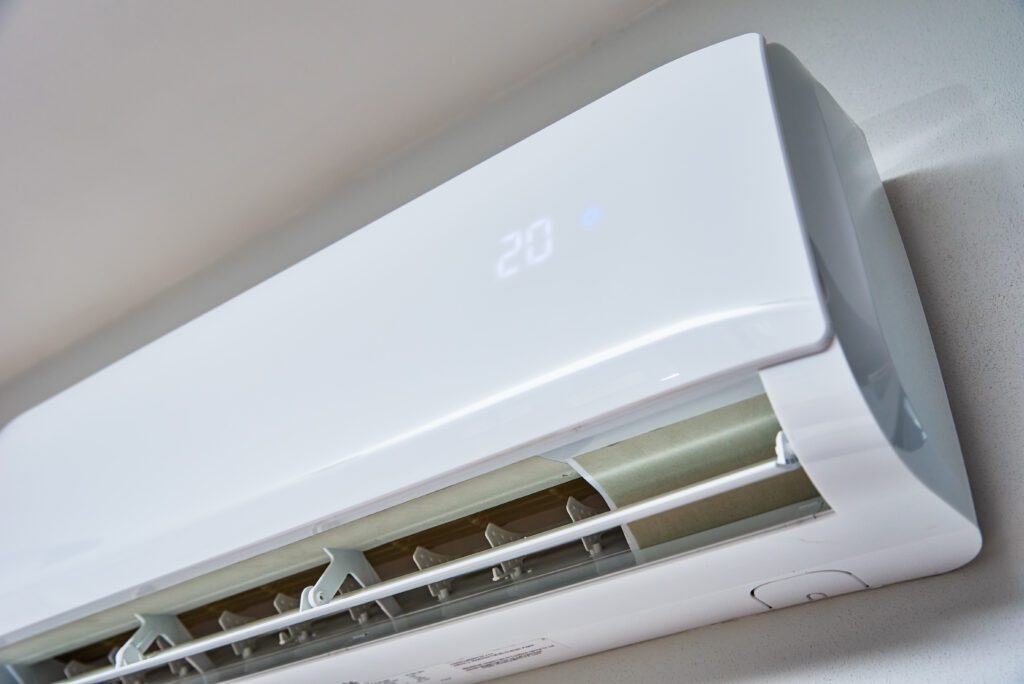Summer can bring soaring temperatures, making it essential to keep your home cool and comfortable. One of the most effective ways to achieve this is by having a well-functioning air conditioning (AC) system. In this article, we will explore some top AC tips to help you beat the heat and create a cool oasis in your home.
Understanding Your Air Conditioning System
Your AC system plays a crucial role in maintaining a comfortable indoor environment during the hot summer months. It works by extracting the heat from inside your home and releasing it outside, resulting in cooler air circulating throughout your living spaces.
Knowing the basic components of your AC system can help you better understand how it works and stay proactive in its maintenance. The three main components include the compressor, the condenser, and the evaporator. Each of these components serves a specific purpose in the cooling process.
The Role of Your AC in Home Cooling
Your AC goes beyond simply cooling the air in your home. It also plays a significant role in reducing humidity levels, improving air quality, and providing overall comfort. By controlling the temperature and humidity, your AC creates an environment that is both pleasant and healthy to live in.
Basic Components of an AC System
The compressor is the heart of your AC system, responsible for pressurizing the refrigerant and initiating the cooling process. The condenser helps release the heat collected from inside your home to the outside air. The evaporator, on the other hand, cools the air as it passes through and removes moisture.
Let’s dive a little deeper into each of these components. The compressor, often referred to as the “heart” of the AC system, is like the engine that drives the entire cooling process. It takes in low-pressure refrigerant gas and compresses it, increasing its temperature and pressure. This high-pressure gas then moves to the condenser, where it releases the heat it has absorbed from inside your home to the outside air.
Now, let’s focus on the evaporator. This component is responsible for cooling the air that is circulated throughout your living spaces. As the refrigerant enters the evaporator, it expands and evaporates, absorbing heat from the surrounding air. This process cools the air, which is then blown back into your home through the air vents.
Understanding how these components work together can give you insight into potential issues that may arise and the importance of regular maintenance to keep your AC system running smoothly. Regular maintenance, such as cleaning or replacing filters, checking refrigerant levels, and inspecting the overall condition of the system, can help prevent breakdowns and ensure optimal performance.
Essential AC Maintenance for Summer
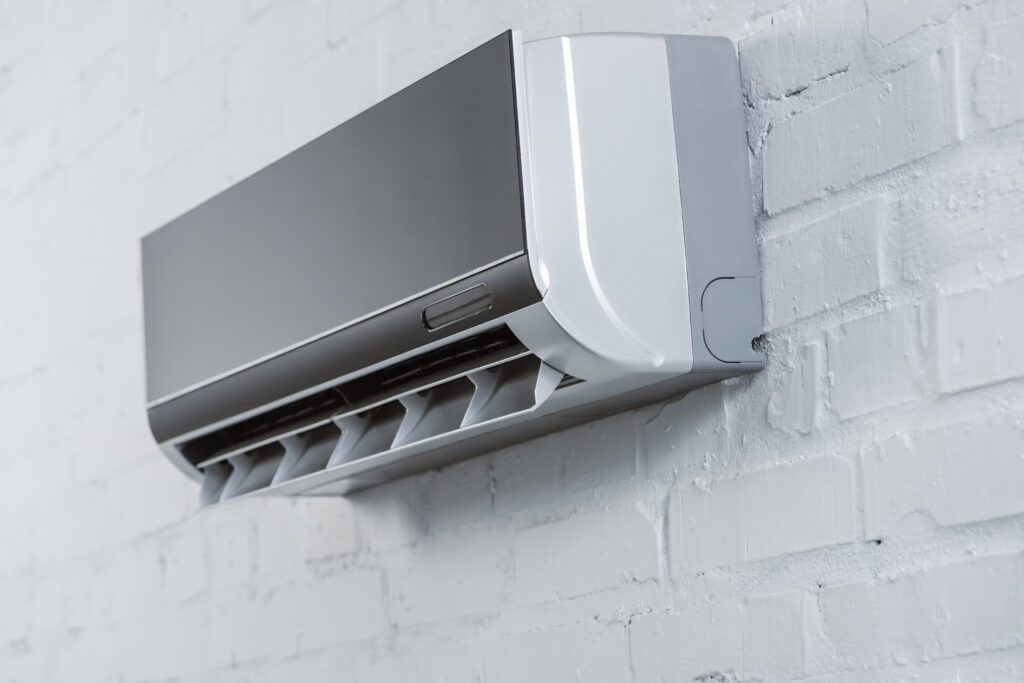
Maintaining your AC system is crucial for optimal performance and energy efficiency. Regular cleaning and timely repairs are two essential aspects of AC maintenance.
As the temperatures rise during the summer months, your air conditioning system works harder to keep your home cool and comfortable. This increased workload can put a strain on the system, making it even more important to stay on top of regular maintenance tasks.
Regular Cleaning and Its Benefits
Regularly cleaning your AC filters and coils can significantly improve its efficiency. Dirty filters and coils can restrict airflow and reduce cooling capacity. Cleaning or replacing filters every few months and scheduling professional coil cleanings can prevent these issues and help your AC system perform at its best.
In addition to cleaning filters and coils, it’s also essential to pay attention to other components of your AC system, such as the condenser unit and evaporator coils. Keeping these parts clean and free of debris can further enhance the efficiency and longevity of your system.
Importance of Timely Repairs
If you notice any issues with your AC, it’s crucial to address them promptly. Ignoring small problems can lead to more significant and costlier repairs down the line. Strange noises, decreased cooling performance, and unusual odors are all signs that your AC may need attention.
Regular maintenance not only helps prevent unexpected breakdowns but also ensures that your system operates at peak efficiency, saving you money on energy bills in the long run. By investing in routine maintenance and addressing repairs promptly, you can enjoy a cool and comfortable home all summer long.
Optimizing Your AC Settings for Summer
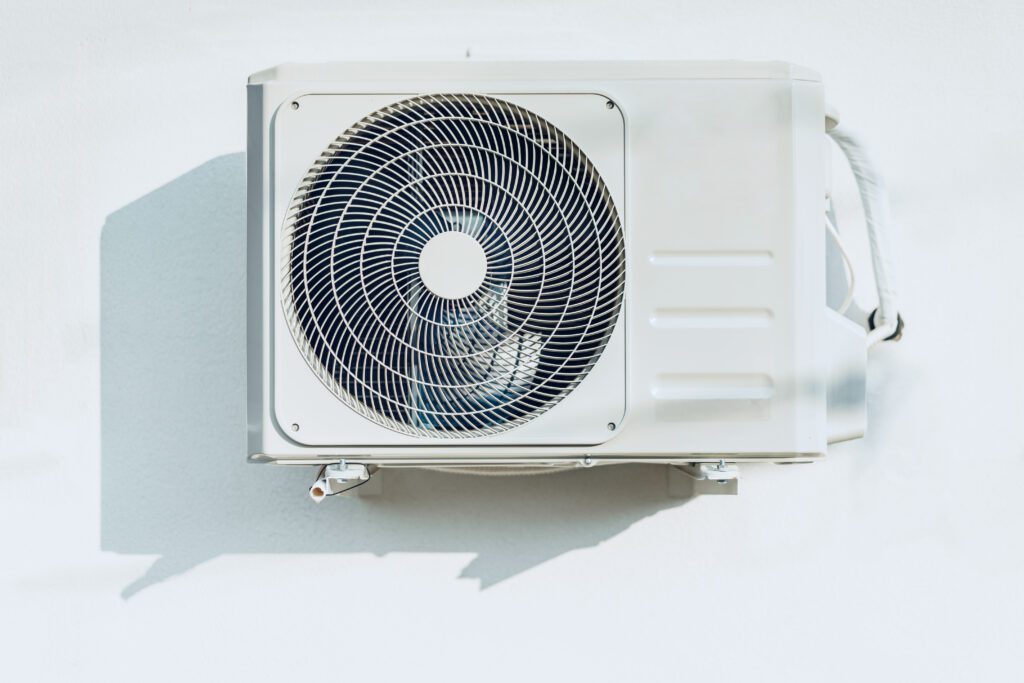
Knowing how to optimize your AC settings can help maximize comfort and energy efficiency. The ideal temperature settings for your AC during the summer vary for each individual, but setting your thermostat between 72°F and 78°F is recommended. Experiment with different temperatures to find what works best for you.
Additionally, it’s important to consider the humidity levels in your area when setting your AC. High humidity can make a room feel warmer than it actually is, so using a dehumidifier in conjunction with your AC can help improve overall comfort.
The Role of Programmable Thermostats
Investing in a programmable thermostat can greatly enhance your AC’s energy efficiency. These thermostats allow you to set different temperature preferences for various times of the day, ensuring your AC operates only when needed.
By using programmable thermostats, you can reduce energy consumption and lower your utility bills while still maintaining a comfortable indoor temperature.
Furthermore, some programmable thermostats come with advanced features such as Wi-Fi connectivity, allowing you to control your AC settings remotely through a smartphone app. This level of convenience not only adds to your comfort but also gives you greater control over your energy usage, even when you’re away from home.
Energy-Efficient Practices for AC Use
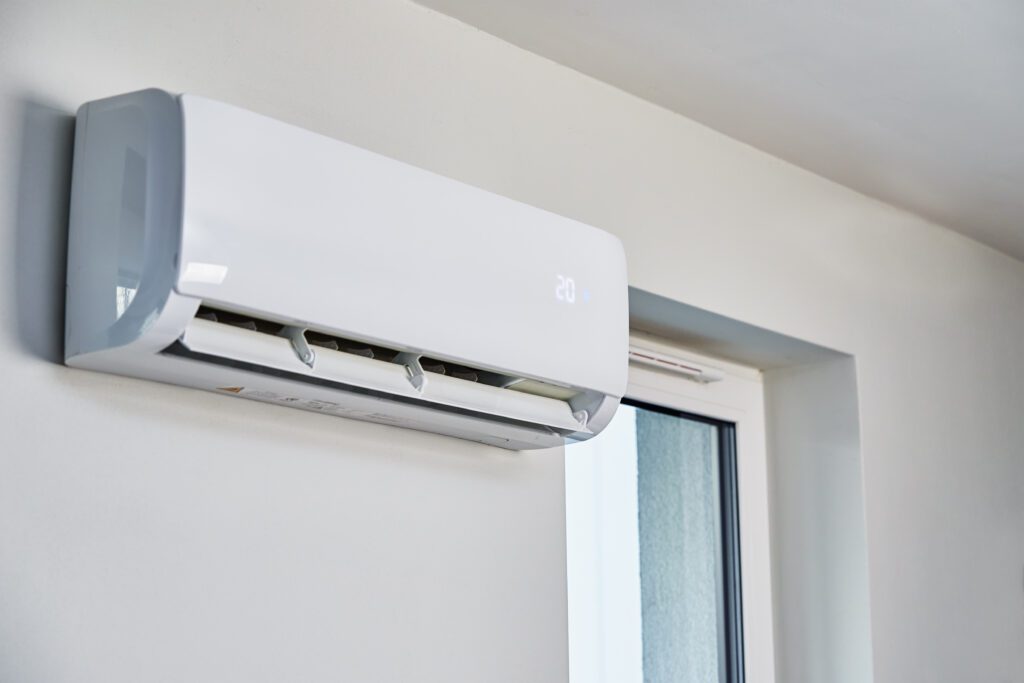
In addition to optimizing your AC settings, there are other practices you can adopt to increase energy efficiency and keep your home cool.
The Impact of Insulation
Proper insulation plays a crucial role in maintaining a cool home. Insulating your attic, walls, and windows can prevent cool air from escaping and hot air from entering. This reduces the workload on your AC system, allowing it to cool your home more efficiently.
When it comes to insulation, choosing the right materials is key. Materials such as fiberglass, cellulose, and foam insulation are commonly used to improve energy efficiency. Additionally, sealing any gaps or cracks in your home’s structure can further enhance insulation, ensuring that your AC system operates at its best.
The Benefits of Using Fans Alongside Your AC
Using fans in conjunction with your AC can create a more comfortable atmosphere while potentially reducing your energy consumption. Ceiling fans, in particular, can help circulate the cooled air, creating a breeze-like effect that makes you feel cooler. This allows you to set your thermostat a few degrees higher without sacrificing comfort.
Another benefit of using fans is their versatility. Portable fans can be moved from room to room, providing targeted cooling where needed. Additionally, fans can be used on cooler days when AC usage may not be necessary, offering a cost-effective way to maintain comfort in your home.
When to Consider an AC Upgrade
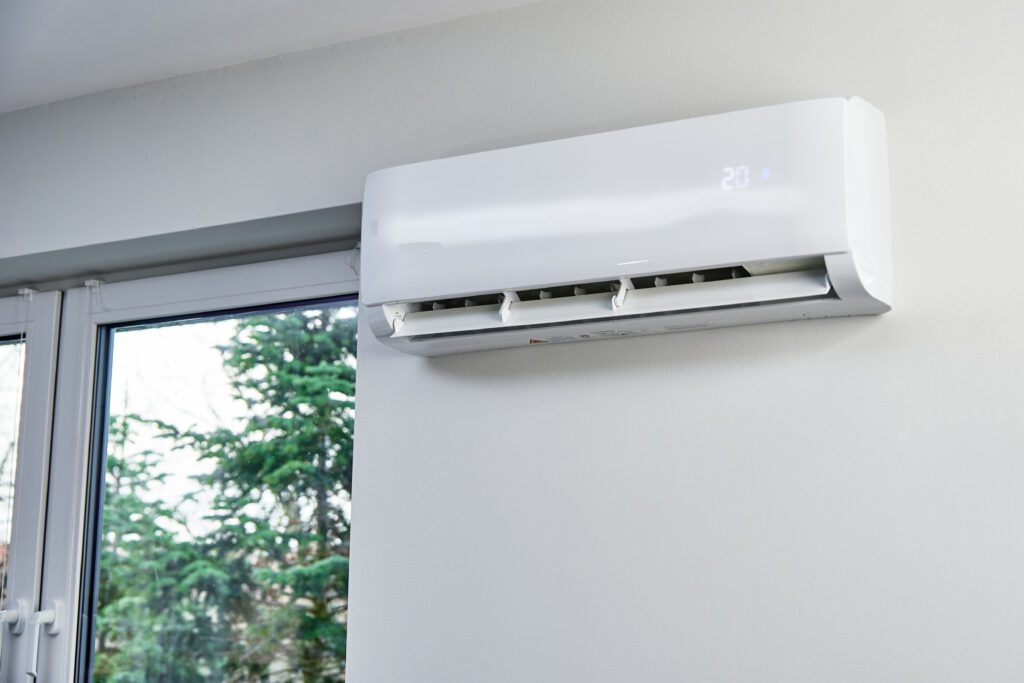
If your AC system starts showing signs of aging or experiencing frequent breakdowns, it may be time to consider an upgrade.
But how do you know when it’s the right time to upgrade your AC system? Well, there are a few key signs to look out for. One of the most obvious signs is inconsistent cooling. If you find that some rooms in your home are freezing cold while others feel like a sauna, it could be a sign that your AC system is struggling to distribute cool air evenly throughout your home.
Rising energy bills can also be a red flag. As your AC system gets older, it becomes less energy-efficient. This means that it has to work harder and consume more energy to cool your home, resulting in higher utility bills. If you’ve noticed a steady increase in your energy bills without any other explanation, it might be time to consider upgrading to a more energy-efficient AC system.
Another sign that your AC system may need replacement is frequent repairs. If you find yourself calling the HVAC technician every few months to fix yet another issue with your AC, it’s a clear indication that your system is on its last legs. While repairs can sometimes solve the problem temporarily, it’s often more cost-effective in the long run to invest in a new AC system that won’t require constant attention and repair.
Choosing the Right AC for Your Home
Now that you’ve decided to upgrade your AC system, it’s important to choose the right one for your home. There are several factors to consider in this decision-making process.
The size and layout of your home play a crucial role in determining the appropriate AC system. A system that is too small will struggle to cool your home efficiently, while one that is too large will cycle on and off frequently, wasting energy and causing temperature fluctuations. Consulting with a reputable HVAC contractor can help you determine the correct size and capacity for your specific needs.
Your cooling needs and budget are also important considerations. If you live in a region with extremely hot summers, you may want to invest in a high-efficiency AC system with advanced features such as variable-speed compressors and smart thermostats. These features can provide enhanced comfort and energy savings, but they may come with a higher price tag. It’s essential to strike a balance between your cooling needs and your budget to ensure you make a wise investment.
Remember, upgrading your AC system is not just about keeping your home cool. It’s also about long-term energy savings and comfort. A high-quality AC system can significantly reduce your energy consumption, resulting in lower utility bills. Additionally, modern AC systems often come with advanced features that allow you to customize your cooling preferences and create a more comfortable indoor environment.
By understanding your AC system, practicing essential maintenance, optimizing settings, and considering energy-efficient practices, you can keep your home cool and comfortable throughout the summer. Regular maintenance and timely repairs are integral to ensuring your AC functions efficiently, while energy-efficient practices can help reduce your environmental impact and lower your energy bills. By staying proactive and seeking professional advice when needed, you can enjoy a cool oasis in your home even during the hottest days of summer.

